
The days are longer, the sun is shining, and the heat is rising – that must mean BBQ season is upon us! While there isn’t much better than getting together with family and friends during the great British summer, the tempting treats and hot grills can pose a danger to our beloved pets.
To help make sure your summer get-together is fun for everyone (including your four-legged friends), we’re sharing some of our top BBQ safety tips for pet owners.
Burning coals, hot wire racks, utensils and food can all cause serious burns to your pet if they get too close – not to mention the scorching open flame and the BBQ itself.
When setting up your BBQ, make sure it’s on a flat surface and out of the way to prevent it from falling over. When the BBQ is lit, never leave it unattended when your pets are around as their curiosity can often get the better of them.
Many BBQ items and accessories should always be kept out of your pet’s reach, especially products like lighter fluid or firelighters. Alcohol can also be dangerous to your pets, so if you’re serving drinks, make sure any spillages are mopped up quickly and that bottles and cans aren’t left lying around.
Pets are opportunists and will take their chances if they can easily get hold of something they shouldn’t! Things like skewer sticks or the cores from corn on the cobs can be extremely dangerous and sometimes life-threatening when ingested, as they can cause gut blockages and other injuries.
Be sure to throw away any leftovers or rubbish into a lidded bin that your pet can’t access when your back is turned.
Don’t give in to the puppy eyes! BBQ food can be especially dangerous to our pets; greasy or fatty foods can upset their stomach, while bones can cause blockages.
While people are eating, try to give your pet a healthy chew or a fun toy to play with to occupy them instead.
Cats and dogs can overheat very quickly on hot days, so it’s important to provide them with a shaded area and plenty of clean drinking water. Where possible, try to keep them indoors in the cool during the hottest times of the day.
Keep an eye on your pet for signs of heat exhaustion, such as heaving panting or excessive drooling. Those that are larger, older, energetic, overweight, flat-faced or have a thick coat will be more at risk than others.
Did you know your pet can get sunburnt just like us? If they have white fur, a thin or patchy coat or are completely hairless, we recommend you put some sun cream on them, paying careful attention to exposed areas like the tips of the ears or on the end of their nose.
If you’re unsure what sun cream to use, talk to the team at your local St Kitts practice who will be able to recommend a pet-safe option.
A house full of strangers can be both exciting and stressful for your pet, so try to give them plenty of opportunities to have time to themselves to relax in peace.
For pets that live in the garden, such as rabbits or guinea pigs, big groups of people and loud noises can be frightening for them. Before people arrive, try to cover part of their cage or move it to a quieter part of the garden.
If you have any concerns about your pet or would like to ask us a question about BBQ safety, please get in touch with your local St Kitts practice.
St Kitts Veterinary Centre: 01252 844044
Basingstoke Veterinary Centre: 01256 844944
Crookham Park Veterinary Centre: 01252 913990
Firgrove Veterinary Centre: 01252 877799
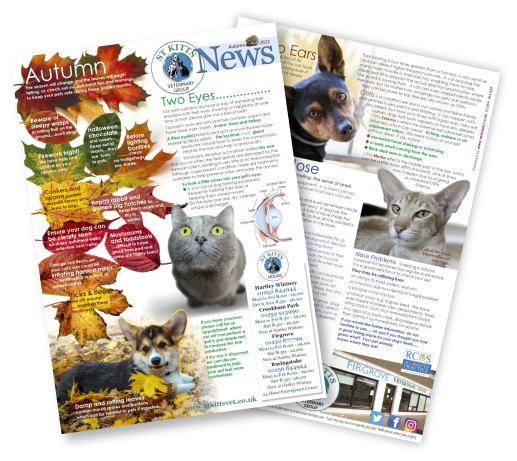
For all the latest practice news and health information for your pets, check out our newsletter with the link below!
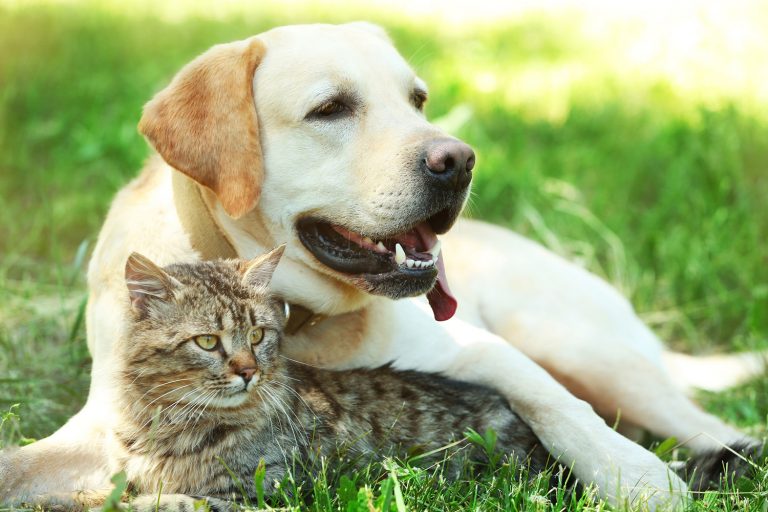
Summertime can be full of fun for everyone, including our four-legged friends. However, when the temperatures rise, the risks to our pets can too.
To help keep them safe, we’ve pulled together a list of the most common dangers to pets over the summer, as well as some top tips to help you avoid them.
Our pets (dogs especially) aren’t as good as humans at dealing with higher temperatures as they find it harder to cool down. While any pet can develop heatstroke, those that are large, older, energetic, overweight, flat-faced or have a thick coat will be more at risk than others.
Signs of heatstroke include:
If you think your pet may have heatstroke, it is vital that you contact your vet immediately and try to cool them down.
How to prevent heatstroke:
Pavements can be deceptively hot on sunny days and will usually be much warmer than the air outside. Sometimes, the ground can become hot enough to burn your dog’s paws. If it’s too painful for you to place the back of your hand on the pavement for seven seconds, then it’s too painful for your dog to walk on.
The severity of an insect bite or sting will depend on the type of insect, the location of the bite/sting and whether your pet is allergic to them. Typical signs can include redness, pain and swelling.
If your pet is stung in the mouth or throat, or you think they may be having an allergic reaction to a bite or sting (symptoms include vomiting, diarrhoea, large swelling, weakness, breathing problems and disorientation), speak to your vet immediately.
Remember to check your pet for ticks every day, taking extra care with any thicker coated animals where the ticks may not be immediately obvious.
If you haven’t organised tick treatment for your pet yet, consider signing up for our Pet Care Plus Plans. Tick treatments, as well as flea and worming, are included and will be posted directly to your door with simple low monthly payments. Find out more and sign up today.
We all love a barbecue in the summer, but they can actually pose quite a few risks to your pets. Food is generally more easily accessible, so your pet may use every opportunity to sneak a snack off your plates or the floor!
Some surprising foods such as grapes, raisins, onions and garlic can be toxic to dogs and cats if consumed in large quantities and should stay off their menu.
Most people will assume that their pets (especially dogs) are excellent swimmers; however, the fact remains that even the best swimmers can struggle to get out of water safely. If you decide to take your dog into the sea, always make sure you assess the conditions first and avoid if it is rough.
Not all dogs will like the sea, so always take their lead on what they want to do. Always start in shallow water first and remember not to throw toys into deep areas.
As with the sea, you need to assess if the lake or river is calm before letting your dog swim. You should also look out for any dangers, such as trees, branches boats or rubbish first.
Blue-green algae can be found in many bodies of water throughout the UK, which can produce toxins that may be harmful to pets. Water that contains blue-green algae may appear a different colour or could be recognizable from the coloured blooms that will appear on the surface of the water or close to the shore. It’s impossible to know if there are any toxins in the water without testing so, on these occasions, it will be best to avoid letting your pet near.
It’s lovely watching the flowers in your garden and out on your walks bloom in the summer, but it’s important to remember that certain species can be toxic to your pets.
Some of the most common toxic summer plants include:
Flystrike in rabbits is particularly common during the warmer months and is caused by flies laying eggs on their body. The condition can be fatal so it’s important you check your rabbit’s fur (particularly around their bottom and tail) at least twice daily over summer.
To help prevent flies from laying eggs, keep your rabbit’s hatch and run clean with fresh bedding every day. Also, keep an eye out for sores or open wounds and ensure they’re kept clean and dry.
There are products available to help protect rabbits, including spot-on formulas and sprays that prevent the eggs from developing. Get in contact with your local St Kitts branch to discuss the options for your pet.
Many slug and snail pellets are dangerous to your pets, with the active ingredient in most, metaldehyde, being highly toxic to both cats and dogs. Eating even just a small amount can cause severe problems, so it’s best to find an alternative to eliminating slugs and snails from your garden.
Common and natterjack toads are native to the UK and are largely found in forests and wet locations. Try to keep your pet away from them as when ingested or mouthed, they can cause issues such as vomiting, frothing/foaming at the mouth, hypersalivation and shaking.
If you are concerned about your pet and would like some advice, please contact your local St Kitts branch.
St Kitts Veterinary Centre: 01252 844044
Basingstoke Veterinary Centre: 01256 844944
Crookham Park Veterinary Centre: 01252 913990
Firgrove Veterinary Centre: 01252 877799
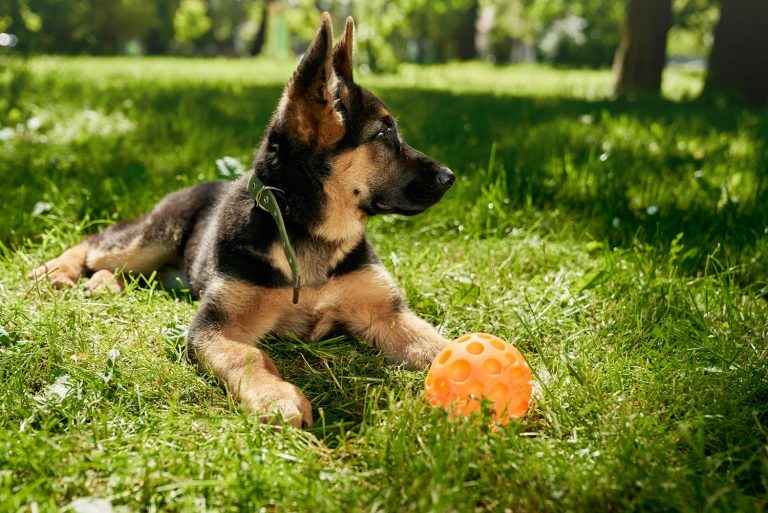
Cases of lungworm in dogs are on the rise in the UK, with thousands of cases being reported. As a result, it’s important that pet owners are aware of the symptoms and how it can be prevented.
Lungworm is a parasite which is carried by slugs, snails and frogs. It lives in the heart and blood vessels of infected animals, where it lays eggs that get carried to the lungs. If left untreated, it can be deadly to dogs.
Lungworm in dogs is caused by eating infective lungworm larvae that are found in the slimy coating of slugs and snails. Whilst it’s more common to contract by eating slugs or snails, the slime trail they leave behind can also present a threat for transmission. Because of this, eating grass, playing with toys that have been left outside and drinking from puddles and outdoor water bowls can pose a risk too.
Diagnosing lungworm can be difficult; the symptoms vary and are usually vague as many dogs won’t show signs for some time. However, the most common things to look out for include:
If you’re worried that your dog may have lungworm, you should get in touch with your vet who will be able to run tests. We offer blood testing and chest x-rays if required for our patients here at St Kitts.
Many cases of lungworm in dogs are relatively simple to treat with a regular monthly deworming product.
There are a handful of ways to prevent your dog from picking up a lungworm infection, including:
No, lungworm is not known to infect humans. There are, however, other types of worms that can be transmitted from pets to humans, including roundworm and tapeworm, so it’s important that regular worming is carried out on your dog.
If you have any concerns about your pet or would like more information about our worming treatments, please get in touch with your local branch.
St Kitts Veterinary Centre: 01252 844044
Basingstoke Veterinary Centre: 01256 844944
Crookham Park Veterinary Centre: 01252 913990
Firgrove Veterinary Centre: 01252 877799

We know how much it pulls on your heartstrings to leave your pet while you go on holiday, no matter how excited you are to be jetting off! As soon as the suitcase comes out, so do the puppy eyes from your furry friend.
Before you can even start thinking about sunny skies and sandy beaches, you want to make sure your pet will be safe and happy while you’re gone. The good news is that with some planning and preparation, they’ll be well taken care of and you’ll be able to relax and enjoy your trip.
Pets can get stressed while you’re away due to the change in their usual routine. Having a friend or family member who can look after them in your home will usually be the best option, helping to keep things familiar for them.
If you’re not able to find a friend or family member who is available to look after your pet, consider getting a pet sitter – someone who will stay in your home to look after your pet while you’re away.
It can be difficult to find the right pet-sitter, as you want to be sure that they are properly suited to care for your pet (and your property). The National Associated of Registered Pet Sitters & Dog Walkers has a handy list of registered members that is a great place to start your search.
Remember this checklist when choosing your pet sitter:
When it comes to finding the perfecting boarding or kennel facility for your pet, research is key. Take some time to look at your options and consider making a list so that you can compare the ones in your area and the services they offer.
The RSPCA suggests asking these questions when choosing your animal boarding or kennel facility:
Does your pet have any particular items that usually help them to relax? Think favourite bedding, toys and treats that will help them feel more comfortable while you’re away.
Make sure that your pet’s tag and microchip details are up to date with your current address and phone number so that you can always be reached should your pet go missing.
It’s natural to feel anxious about leaving your pet in the care of someone else, but it’s important that you stay calm and positive in the run-up to your holiday. This will prevent your pet from picking up on any emotional cues that may cause them stress.
You should share your pet’s routine with whoever they’ll be staying with, whether that’s a friend or boarding facility, to help keep things as normal for them as possible. Include their usual food and treats (plus feeding instructions), exercise schedule and any medication instructions.
Remember to take leads, collars, toys, litter trays, cages, scratching posts etc. if dropping your pet off at a boarding facility to help keep things familiar for them.
If leaving your pet at a boarding facility or kennels, make sure their vaccinations are up to date, especially for kennel cough, which can be passed on easily from other dogs.
For more advice on leaving your pet when you go away, or for any other concerns you may have, please contact your local St Kitts branch.
St Kitts Veterinary Centre: 01252 844044
Basingstoke Veterinary Centre: 01256 844944
Crookham Park Veterinary Centre: 01252 913990
Firgrove Veterinary Centre: 01252 877799
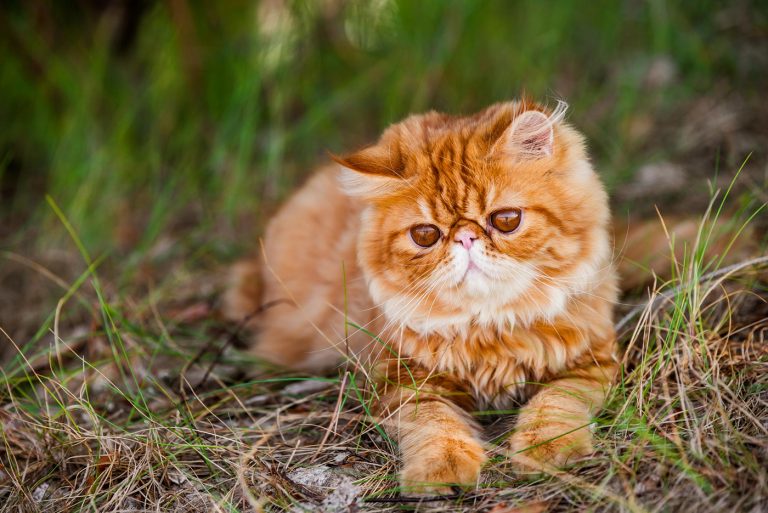
National Microchipping Month is supported every June and provides a great opportunity for us to remind dog and cat owners about the importance of getting your pet microchipped.
Microchipping your pets plays a significant part in your care for them and helps to ensure that you are happily reunited if they ever go missing. It has been mandatory to microchip all dogs in the UK since 2016, with the same set to apply to cats from 2023.

Microchipping is quick and safe and to your pet, will feel like getting their normal vaccinations. It only takes a few seconds, so there’s minimal discomfort. The chip itself is very small – about the size of grain of rice – and is implanted just under the skin on the back of your pet’s neck.
There are a handful of reasons why your pet can go missing; even the homeliest of dogs or cats can easily find themselves lost and confused if they wander a bit too far. If that ever does happen, your pet’s microchip will have a unique number that can be scanned by a vet, animal warden or police station in the UK to identify the animal’s details, including your emergency contact number so that they can be reunited with you safe and sound.
Unlike collars or tags that can be removed or lost, once your pet has been microchipped, their unique code will be linked to the national database and will last their lifetime.
Remember: If your contact details change for any reason (including your address), you need to make sure this information is updated.
This National Microchipping Month, please ensure your dog or cat is microchipped. Not only is it important for their welfare, but it will also give you peace of mind. Microchipping is included free with our Pet Care Plans, making it the purrfect time to sign up! Prices start from as little as £10.50 per month.
Get in contact with your local St Kitts branch to book an appointment today.
St Kitts Veterinary Centre: 01252 844044
Basingstoke Veterinary Centre: 01256 844944
Crookham Park Veterinary Centre: 01252 913990
Firgrove Veterinary Centre: 01252 877799
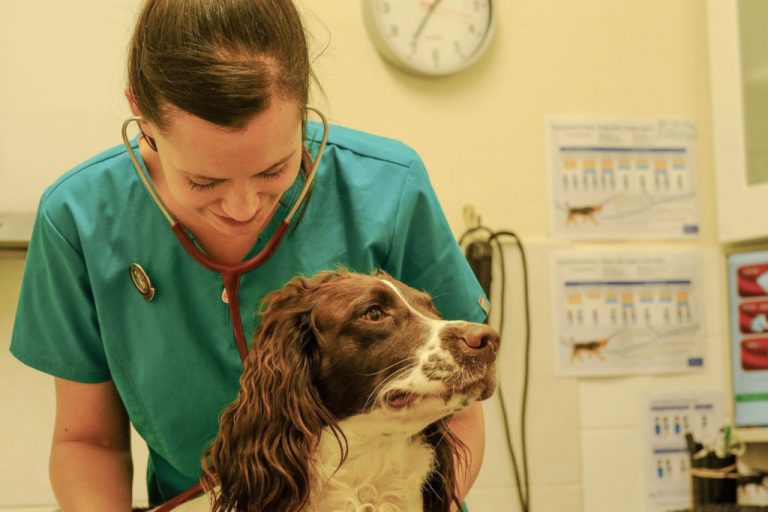
Veterinary Nursing Awareness Month (VNAM) was originally launched back in 2005 by the British Veterinary Nursing Association (BVNA). Its aim was simple: to raise awareness about the importance of the work veterinary nurses do within practice and the wider industry.
Because of this, we’ll be celebrating our wonderful veterinary nurses throughout May and would love you to join us!
Our veterinary nurses are integral to the team here at St Kitts Veterinary Group. They have the technical knowledge and expertise to ensure the smooth running of our four practices, caring for our customers’ pets with skill and empathy. They also:
There are two main pathways you can take to train as a veterinary nurse – vocational training or higher education. Regardless of which route you choose, you’ll need to make sure your course is accredited by the Royal College of Veterinary Surgeons (RCVS).
Vocational training
A vocational qualification is the fastest way to become a Registered Veterinary Nurse (RVN). You can complete a Level 3 Diploma in Veterinary Nursing, which can take as little as 2 years to complete full-time.
This route means you’ll spend time both in the classroom and working in practice, so you’ll get plenty of hands-on experience.
Higher education
A Degree in Veterinary Nursing often takes between 3-4 years to complete. This path is more academically focused, but you will still need to complete a minimum amount of practical work experience on placements with approved practices.
This route is great if you want to experience life at university and gain a degree, potentially opening up different career paths or further study down the line.
Keep an eye on our Facebook and Instagram pages throughout May, as we’ll be sharing more insight into our veterinary nurses and what they do at our practices!

At St Kitts Veterinary Group, we are looking for a motivated and passionate Registered Veterinary Nurse to join our team of ANAs, SVNs and RVNs at our independent small animal practice in Hartley Wintney, North Hampshire.
We have been caring for the small animal community since 2000, when the doors were opened to our first practice in the picturesque village of Hartley Wintney. Since then, our group has blossomed into a large family of modern surgeries, including locations in Basingstoke, Yateley and Fleet.
We pride ourselves in high levels of client and patient care and have a great team of staff who are keen to use their skills and qualifications to their full potential. Our experienced veterinary surgeons are trained in advanced surgical techniques and are supported by our brilliant nurses and receptionists
Full-time, 40-hour week (part-time would be considered for the right candidate)
8am-7pm, with a share of the weekend rota (with time off in lieu)
Competitive, dependent on experience
If you would like to apply for this role, please send your CV, along with a covering letter, to practicemanager@stkittsvet.co.uk.
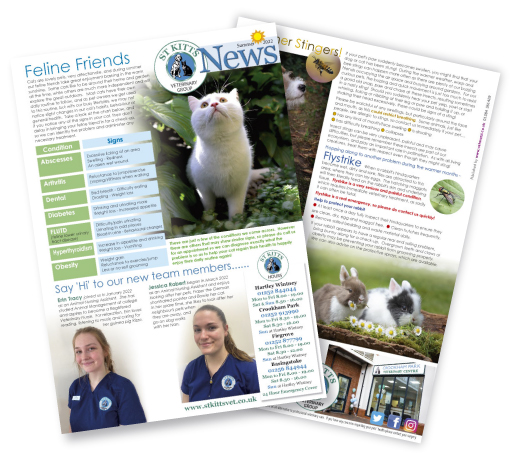
For all the latest practice news and health information, check out our newsletter with the link below!

As valued members of the family, we want to make sure our pets are happy and healthy. A key part of this is ensuring that they remain parasite free. Different parasites can affect your pet in different ways, ranging from simple irritation to causing life-threatening conditions if left untreated.
It’s really quite common for a dog, cat or rabbit to become infected with a parasite at some point in its life and some of these parasites can even infect and transmit diseases to you and your family. Prevention, diagnosis and safe treatment can make sure the whole family is kept safe.
Fleas
Fleas are common parasites that carry disease caused by bacteria that can cause inflammation of the lining of the heart in cats and dogs. These bacteria can also affect humans, causing fever as well as illnesses such as encephalitis and endocarditis.
Fleas are also known to carry the flea tapeworm that can cause real harm to our pets, so it’s important that flea control is taken seriously.
One single flea can lay 50 eggs a day, so it doesn’t take long for an infestation to occur. It’s worth noting that 95% of a flea infestation is found on sofas and in carpets, not on the pet itself. Targeted sprays are available to treat carpets, curtains and other soft furnishings.
The only way to prevent flea issues is to treat your pets with an anti flea treatment regularly, all year round. This ensures that both you and your pets stay itch free and safe from all flea related diseases.
Ticks
Ticks are small, parasitic, spider-like creatures. They are very common, especially throughout the warmer months and they feed by latching onto a host’s skin in order to suck blood.
This becomes dangerous to pets, as well as people because ticks can carry a disease called Lyme Disease. This is a bacterial infection that is still fairly rare in the UK but cases are on the rise. Symptoms to look out for include;
If you notice these symptoms in your pet and suspect a tick bite, consult your vet straight away.
There are a number of effective preventative treatments available that either kill or repel the tick once it attaches to your pet. As well as using treatments regularly, it’s recommended that you make a habit of checking over your pet for ticks and promptly remove any found using a specially designed tick remover. If you are in any doubt, consult your vet.
Worms
Roundworm
Roundworm eggs are found in soil. They are moist, sticky and can easily find their way into our homes on shoes or animal fur. The eggs can then be ingested as your pet grooms itself and the eggs hatch into worms in your pets’ intestines. Roundworm can also be passed on to humans, particularly children, where serious infestations can cause severe symptoms, including blindness (toxocariasis).
Tapeworm
Pets can catch tapeworms by either eating fleas during grooming or by eating infected mice, birds, raw meat or faeces. Tapeworm look like flattened grains of rice. If you suspect a tapeworm problem is it advisable to treat your pet for fleas as well as worms. Some species of tapeworm can also spread to humans occasionally causing complications such as blindness (toxocariasis).
Lungworm
Lungworm is becoming more common in the UK and can be potentially fatal if it goes undiagnosed and untreated. Symptoms can be mild but may include a severe cough and life-threatening blood clotting problems. Lungworm can be picked up by your pet when eating slugs and snails – either intentionally or in mouthfuls of grass, vegetation or by drinking water left outside.
Worm control medication will not prevent re-infestation as they only kill worms already present in your pet. Therefore, it is important to treat your pet regularly, especially if they hunt or scavenge.
Don’t forget that tick treatment for cats and dogs along with an annual supply of both worming and flea treatment is available as part of our Premier Pet Care Plan. For more information on this or if you have any other questions, please get in touch:
St Kitts Veterinary Centre: 01252 844044
Basingstoke Veterinary Centre: 01256 844944
Crookham Park Veterinary Centre: 01252 913990
Firgrove Veterinary Centre: 01252 877799